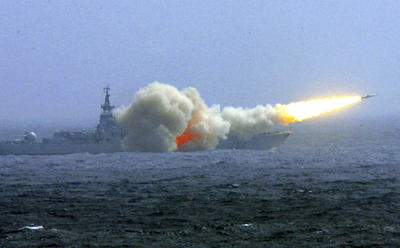Japan and South Korea, Japan and China, and China and ASEAN have all engaged in tit-for-tat exchanges over second-order territorial disputes, and the disagreements have re-animated many of the deep animosities that bedevil the region.
This could become a much bigger worry because the absent ‘teacher’ is the United States, whose authority and influence is now considerably circumscribed. This is partly because it no longer has a surfeit of comprehensive power relative to everyone else, and partly because other states are no longer as conditioned to accept order and discipline as they were during the Cold War. Still, there may be a lingering faith that, if an issue in the region runs out of control, the United States will be able to get things back on track.
The United States has announced, through its pivot strategy and other initiatives, that it is back in the classroom, and this has been associated with a defusing of these territorial disputes — at least for now. But the disputes have not been resolved, which does not augur well for the region or for the world, now that Asia is the global centre of gravity.
What’s to be done? A reasonable solution might be to eschew subtle and indirect approaches in favour of positive action. The squabbling powers should resolve to address these maritime territorial disputes as a matter of priority. China and Japan must show the leadership needed to put these issues at the top of the regional agenda. Tackling the various disputes all at once may make the political pain of compromise more bearable because other states will be sharing the same experience.
The Japan–South Korea and Japan–China disputes seem relatively suited to adjudication in the International Court of Justice because they are the subject of international treaties, agreements and understandings. To get the disputes to court, Japan, China and South Korea will have to forge a political consensus in favour of adjudication, a process that includes preparing public opinion for a less than favourable judgement. Before going to court the parties should ideally work out a resource-sharing regime for the contested territory and set out clear (possibly shared) guidelines on the privileges that may be extended to the losing party.
The South China Sea presents an even more formidable challenge. The legal foundations of the various claims are more ambiguous. China has stumbled into an untenable position because its sweeping claim to essentially the entire sea looks and is imperious and greedy. It is difficult to support the claim by reference to contemporary international law. In its endeavours to sustain its claim, Beijing invariably comes across as a big bully, coercing the small states that bound the sea. In Cambodia this year, Beijing found itself exposed as prepared to break ASEAN solidarity to secure a trivial presentational preference in the ASEAN Foreign Ministers communiqué. Beijing has no discernible moral high ground on which to stand, and is likely to pay dearly for sticking to its ambit claim.
As the states in the region watch the South China Sea disputes they will be making judgements about what ‘harmony’ really means to Beijing and asking the question: how desirable is a Sino-centric regional order? The South China Sea dilemma is of China’s making, but resolving it is asking a lot of China’s capacity for leadership and statesmanship. Beijing must be encouraged to start thinking like a responsible regional leader, including taking a hard-headed look at the long-term costs it is likely to incur if it retains its present policy settings.
This agenda requires an abundance of the qualities that appear to be in alarmingly short supply in East Asia: common sense, cooperation and leadership. But if these territorial disputes can be placed on a path to resolution, it would help deliver another decisive dividend. It would assist the quest by China and the United States to identify a regime of mutual tolerance, if not constructive partnership to govern their relationship in the region and beyond.
It’s easy to dismiss these observations as impractical idealism. Yet up to this point the default policy recommendation from many in the region, not least Beijing, has been to step around territorial disputes and tackle them at some future time. That strategy has not worked and it’s hard to see why the future will be different. Waiting for ‘some future time’ means betting that these disputes will not result in actual military conflict and transform the regional outlook rather dramatically for the worse. That’s not a bet I would like to make.
Ron Huisken is an Adjunct Associate Professor in the Strategic & Defence Studies Centre at the Australian National University.

